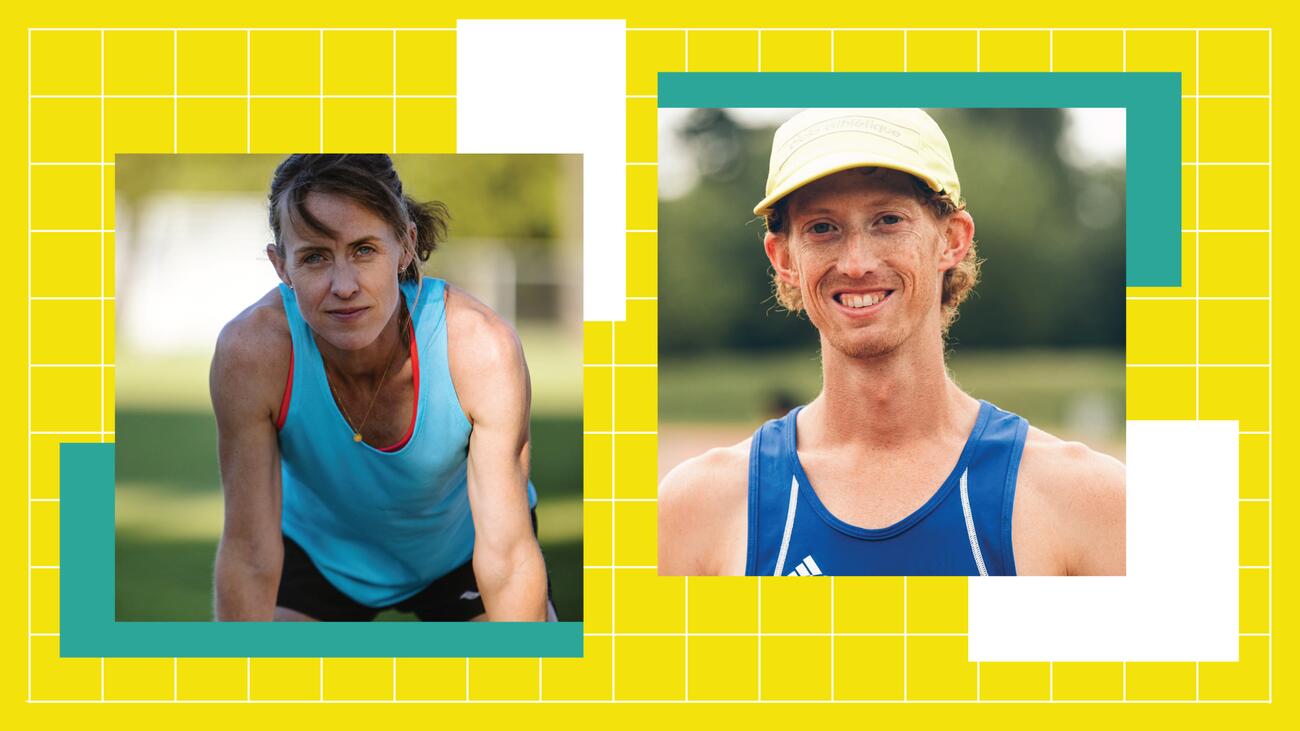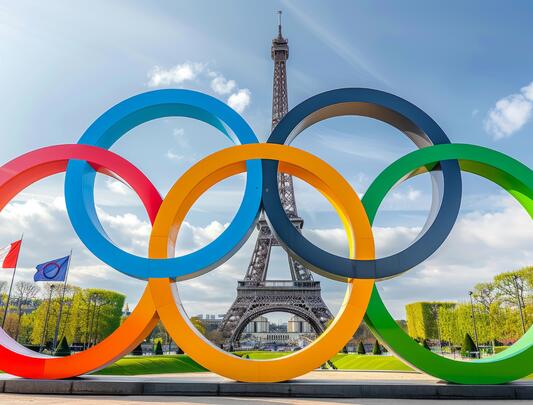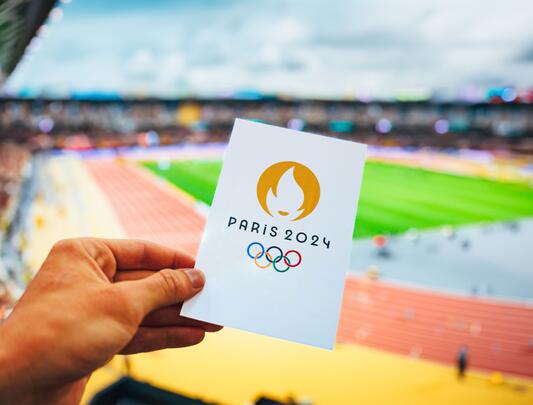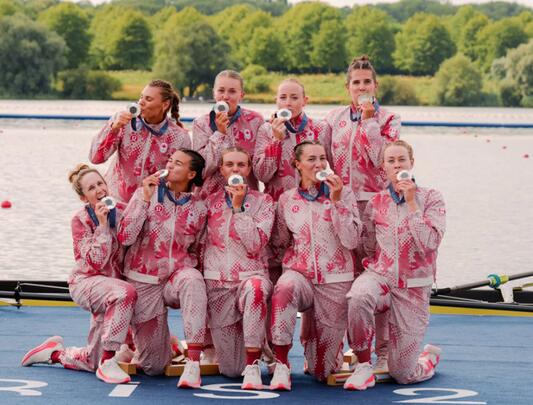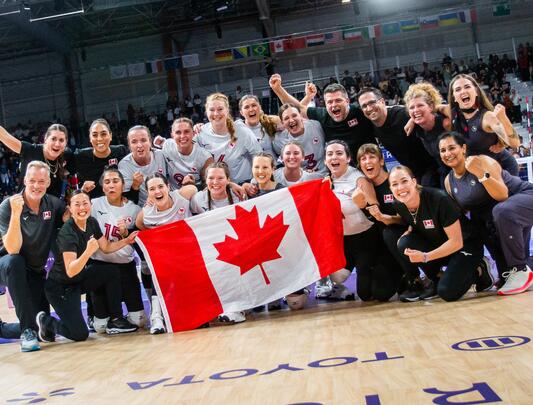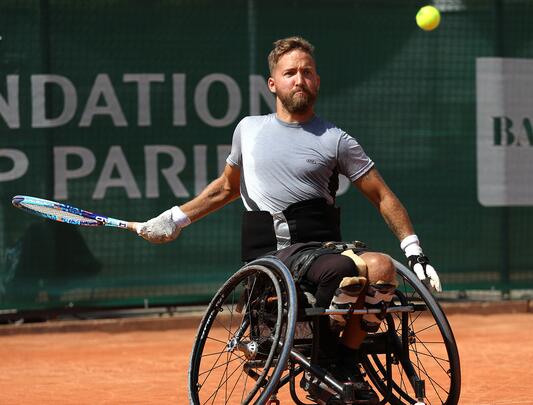Unlocking the Olympian mindset: 6 lessons for success
Two UBC alumni competing in the Paris Olympics reveal what it takes to perform under pressure, bounce back from setbacks, and achieve success.
On July 26, more than 10,000 athletes will gather at the Jardins du Trocadéro in Paris to celebrate the opening of the 33rd Olympic Games. After training tirelessly for years, these athletes will be ready to perform stunning feats in front of millions of inspired viewers.
In order to compete at such elite levels, Olympians have not only perfected their sport — they’ve mastered the art of setting routines, handling pressure, and dealing with setbacks. Their strategies for success can be useful to us all, regardless of the goals we aim to achieve. So I spoke with two UBC alumni who will be competing in Paris to learn how we can adopt the mindset of an Olympian — whether we have dreams of one day competing at the Olympics or just want to own the podium in our own lives.
1. SET GOALS BUT ENJOY THE JOURNEY
Race walker Evan Dunfee first dreamed of attending the Olympics when he was a 9-year-old growing up in Richmond, BC. After completing his Bachelor of Kinesiology at UBC in 2014, he went on to realize this childhood dream, placing fourth in the 50km race walk in Rio de Janeiro in 2016 and winning a bronze in Tokyo in 2021. He currently holds numerous Canadian race-walking records, serves as a race-walking coach at UBC, and has even appeared on a limited edition box of Kraft Dinner. In Paris, Dunfee will speed by the Eiffel Tower in the 20km race on August 1 and in a new event — the 35km mixed relay — on August 7, alongside Olivia Lundman, a UBC student whom he has helped coach.
While his career is a testament to the importance of setting goals, Dunfee also stresses the value of enjoying the process as much as any potential outcome. “It took a long time to reframe how I viewed success away from this idea that winning is the only thing that mattered,” he says. He admits that he dreams of setting world records and winning gold medals, but he has come to realize that “success is in the process, not in the outcome.”
Goal-setting is a powerful tool that can help us get to where we want to be, but we should heed the advice of someone who routinely walks 50 kilometres at high speed and remember to find meaning and satisfaction in every step we take along the way.
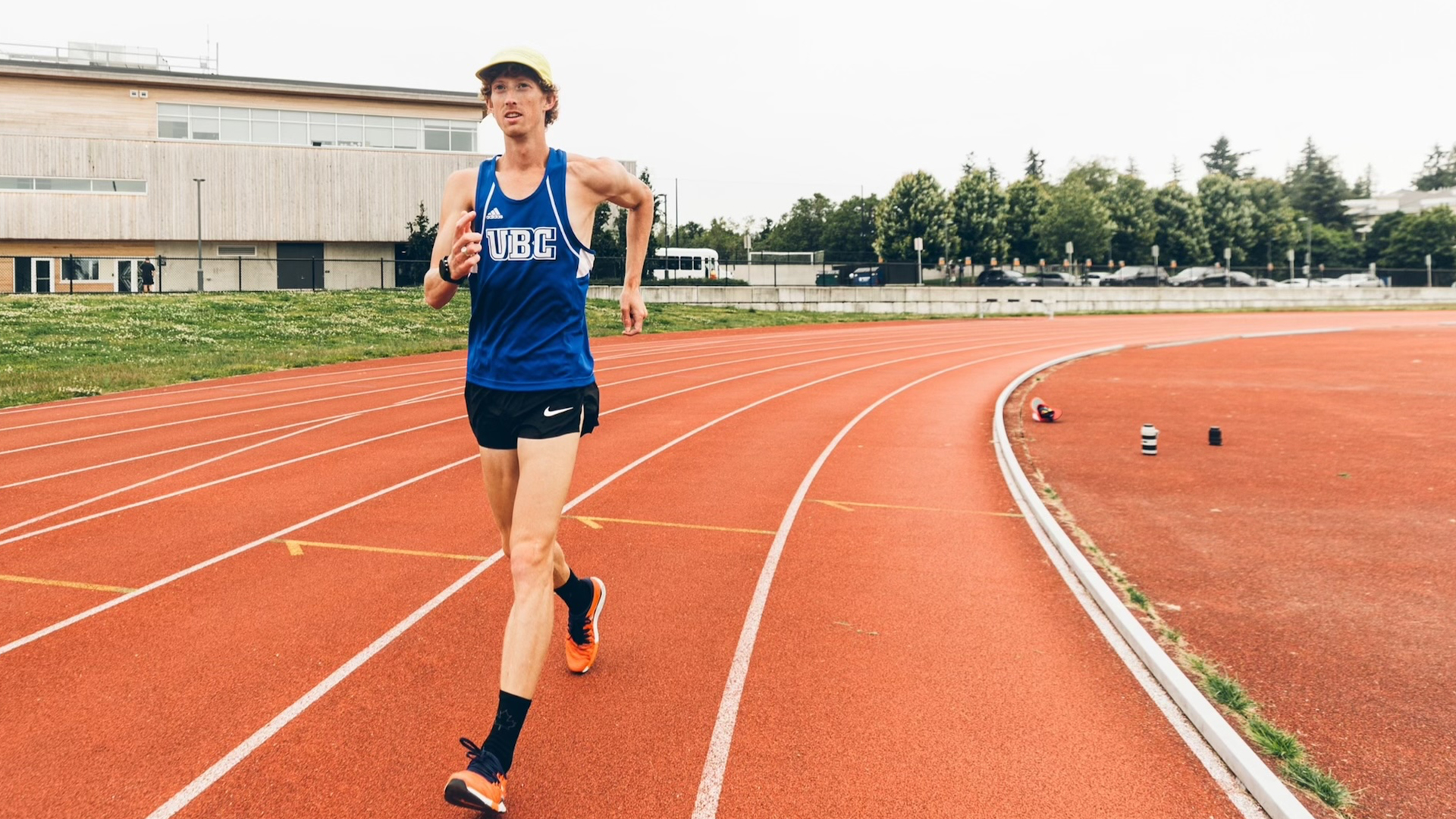
2. CREATE ROUTINES THAT ARE BOTH FLEXIBLE AND FUN
It’s one thing to establish a goal, but it’s another to see it through to completion.
Marathon runner Malindi Elmore is deeply familiar with what it takes to get to the finish line of a goal that’s (quite literally) far off in the distance.
Elmore first represented Canada in the 1500m at the 2004 Athens Games. Following her retirement from middle-distance running in 2012, she earned a Bachelor of Education from UBC Okanagan in 2014 and began competing in triathlons. In 2019 — just seven months after the birth of her second child — Elmore ran her first marathon. A year later, she competed in her second — and broke the Canadian record by more than two minutes. She ran to a ninth-place finish at the Tokyo Olympics, and on August 11, she will lace up her running shoes for the marathon event in Paris.
For Elmore, the key to following through on one’s aspirations is establishing a routine: “It really helps when your habits become just like habits.” Consistency, she says, is paramount to success.
Elmore’s top advice for developing a winning routine? Be proactive and prioritize what matters: “Make sure to have an actual plan of when you're going to do it — that might mean getting up and putting your workout clothes on right away and going out first thing in the morning before anything else gets in the way.”
Dunfee similarly highlights the importance of routine, but also notes that it is crucial to remain flexible: “Once you've found that rhythm, listen to your body and do what you think you need to do.” For him, this includes acknowledging that “sometimes I need to eat a donut, or sometimes, I need to take a step back, I need to rest.”
Whether our goals are fitness-oriented or not, Dunfee believes that we should try to build routines out of activities that we enjoy: “Make sure you're having fun and make sure you're doing what makes you happy as well, because if you're doing what makes you happy, it doesn't feel like a routine — it just feels like a thing you get to do.”
So, if you finally want to find the time to write that novel or learn to paddle-board, these seasoned Olympians advise that you intentionally plan these activities into your schedule. At the same time, we should feel empowered to deviate from the plan when necessary, because a flexible routine is a sustainable routine.
"Success is in the process, not in the outcome.” – Evan Dunfee
3. HARNESS THE POWER OF NERVOUS ENERGY
I get nervous just watching sporting events, so I can only imagine what it feels like to perform in front of billions of viewers! Yet both Elmore and Dunfee make it clear that nervousness is a normal — and even beneficial — part of elite competition.
“I always get nervous before races,” says Elmore. “I think when I stop getting nervous, it means that I don't care anymore… I just try to remind myself that I have to do the best I can do based on my training and my fitness, and I believe that once the gun goes off, I'll show up.”
Dunfee agrees, and points out that nervous energy can make you more responsive in the moment: “You can use that kind of nerve and jitteriness to your advantage.”
He adds, jokingly, that he’s never been more nervous than he was during a high-jump competition in elementary school. “I had no idea how well I could do, or what I was going to do, and I didn't really have a ton of confidence,” he recalls. “Now, I know the training I put in, I know what my body can do, and it's exciting to get the opportunity to showcase that.”
So when it comes to that next big presentation at work, for example, try to remember that nervousness is a normal aspect of any high-pressure situation. Instead of shaking our confidence, feeling nervous can actually serve as a reminder of all the work and preparation we’ve put in to reach this moment. Research even shows that reframing anxious feelings as excitement — rather than trying to quell them — can actually lead to better performance.
4. FOCUS ON WHAT YOU CAN CONTROL
Regardless of how much we might prepare for any single event, there will always be factors outside of our control — be that inclement weather or an unexpected injury.
Dunfee is something of an expert when it comes to handling the unexpected with grace: in the final metres of the 50km race at the Rio Olympics, he was in third place when he was bumped from behind by Japan’s Hirooki Arai. Dunfee’s rhythm was broken and Arai passed him to finish in third. In a whirlwind of events, Arai was disqualified for making contact with Dunfee, and Dunfee was awarded the bronze medal. Hours later, however, an appeal returned the medal to Arai. In a spirit of sportsmanship, Dunfee decided to let the ruling stand.
This experience has undoubtedly shaped his outlook. Instead of worrying about what lies beyond his control, Dunfee looks inwards: “If three guys go faster than me, I can't control that, really, but the goal that I can control is to get myself as fit as possible and to give myself the best chance at fighting for that.” He adds: “I frame success in terms of how much satisfaction, success, and joy I can get out of doing my best… and that really helps to minimize those external factors.”
Elmore herself emphasizes the importance of staying adaptable in the face of the unexpected — whether that means changing your strategy or even just your workout clothes if the weather isn’t cooperating. “If you get too bogged down by the stuff that you can't control,” she says, “then you’ve lost your edge.”
Part of what makes competing so exciting is this sense of the unexpected. Instead of dwelling on what you can’t control, stay open to switching tactics, so that you can perform at your best under any circumstances.
“I often go back to the same idea: win or learn. Either you nail it or you're learning.” – Malindi Elmore
5. RECOGNIZE THAT SETBACKS CAN BE A SPRINGBOARD TO SUCCESS
Of course, life can, and does, throw devastating curveballs even when you’re focused on doing your best. While setbacks are a near inevitable part of life, what matters most is how we respond to them.
Elmore can relate. Last year, during an Olympic qualifying event in Seville, she stopped 15 kilometres short of the finish line. Reflecting on the race, she says, “I didn't do a good job of overcoming jet lag, I let anxiety get in the way, and I went out a little bit too fast, just outside my comfort zone.”
Rather than dwelling on this disappointing result, Elmore treated it as a valuable learning opportunity. “That experience in Seville was actually really important for my next couple marathons, because I was reminded of those things that I need to do to be successful,” she says. In her next marathon in Ottawa, Elmore prioritized “running a more controlled, patient race,” and later that year, she qualified for the Olympics at the Berlin Marathon with a personal best time of 2:23:30.
“It’s all about learning from experiences,” Elmore says. “I often go back to the same idea: win or learn. Either you nail it or you're learning.” From this perspective, a disappointing result can actually be a springboard to victory, providing the lessons that can help you succeed in the future.
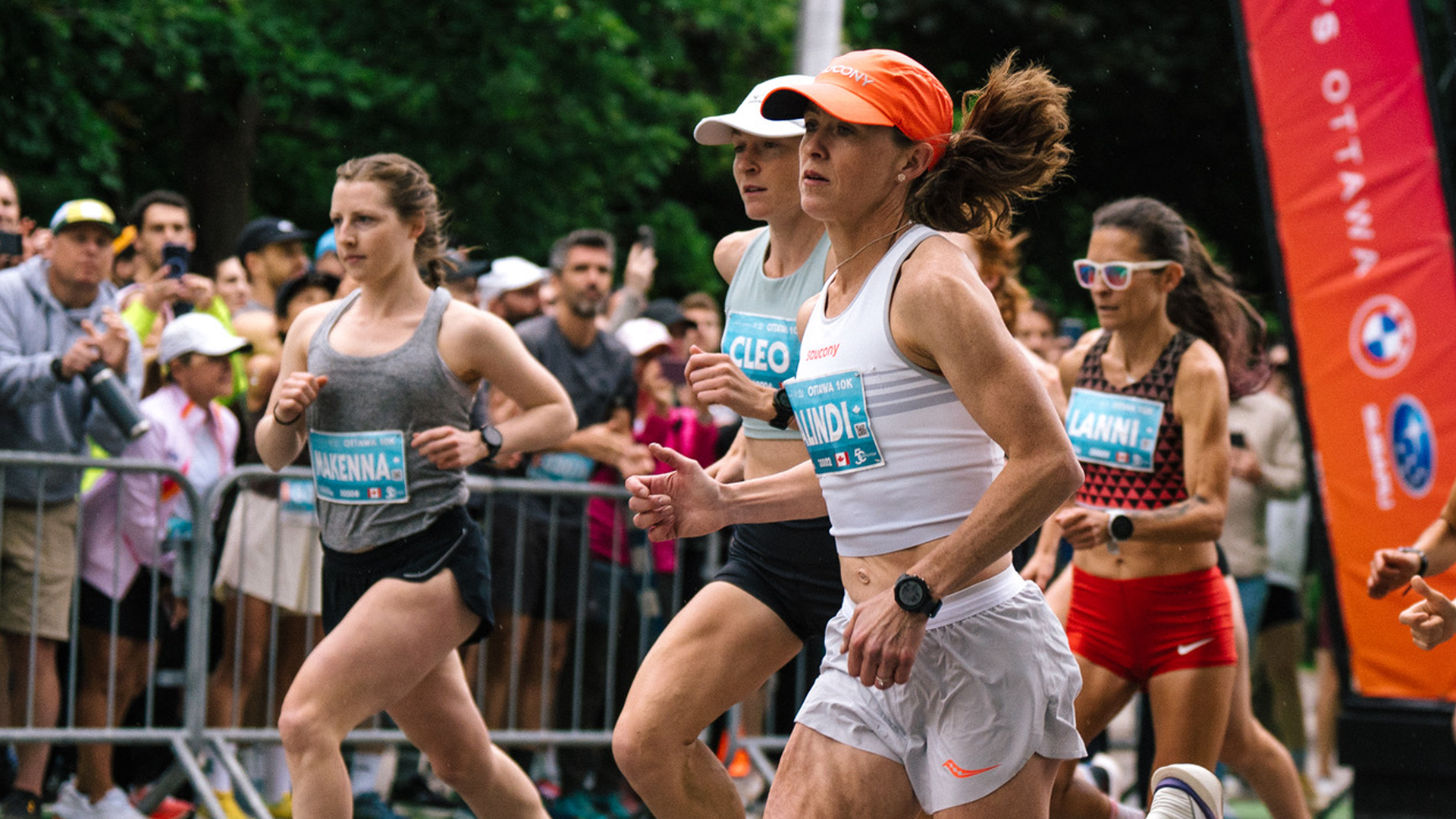
6. LOOK TO YOUR COMMUNITY FOR SUPPORT AND INSPIRATION
Both Dunfee and Elmore credit the role that community support has played in their success.
Dunfee shares that this was particularly true during the lead-up to the Tokyo Olympics, when the COVID-19 pandemic prevented him from participating in training camps like he usually does. “It really was that sense of community that helped me,” he says. “The amount of times I was struggling through a hard workout in the cold, wet Richmond winter and someone rolled their window down and yelled out, ‘Good luck in Tokyo!’ or ‘Go, Evan, go!’... It’s just little things like that that really did spur me on through those hard training months before the Olympics.”
Elmore identifies the UBC community as a valuable part of her personal and professional development. She currently serves as the head coach of the UBC Okanagan cross-country team, a position which inspires her own athletic performance. “I'm often very motivated by how hard my athletes work and how well they balance their lives and the demands of being students,” Elmore says.
While it might seem intuitive, the takeaway is that we should look to our communities for support and inspiration in our endeavours. Our friends and families want to help us succeed. Likewise, we should remember to support others in their pursuits. This can be as simple as sharing some affirming words in person or via text. Remember that behind every winner up on the podium are countless people who helped them along the way.
NAILING THE EVERYDAY OLYMPICS
The Paris Games will offer unparalleled displays of athletic prowess that will inspire many of us to reach new heights in our daily lives. Even if we can’t all run a marathon in record time or perform epic breakdancing routines (a sport making its Olympic debut in Paris), we can follow the advice of Elmore and Dunfee and pursue our goals and dreams with the mindset of an Olympian.
Thanks to Evan Dunfee and Malindi Elmore for their time and wisdom — we wish them the best of luck in Paris!
























